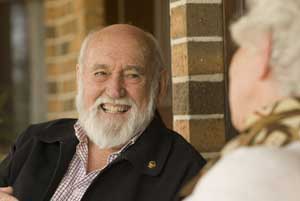
Two Blue Care facilities will be at the forefront of a $1.4 million research project to improve palliative care resources for residential aged facilities around Australia.
Blue Care Amaroo Aged Care Facility in New South Wales and Iona Aged Care Facility in Queensland will be used as demonstration sites for the two-year project led by the University of Queensland/Blue Care Research and Practice Development Centre.
The Centre was awarded t around $1.4 million by the Department of Health and Ageing under the Encouraging Best Practice in Residential Aged Care Program.
The Centre’s Acting Director Associate Professor Deborah Parker said she was pleased to promote the project, Implementation of a comprehensive evidence-based palliative approach in residential aged care, during National Palliative Care Week this week (May 24-30, 2009).
“The project is aimed at providing the quality care for residents and their families at the end of their life,” Associate Professor Parker said.
“It will be a collaborative project, which will involve researchers, health care providers and palliative care specialists from Queensland, Western Australia and South Australia.
“A significant amount of research has already been done in Australia identifying the best ways to care for people who are dying in a residential aged care facility.
“The project aims to consolidate this information and develop an evidence-based model of palliative care, which will be available to all Australian facilities via a Toolkit.”
The Toolkit will outline a step by step approach to implementing this model of palliative care, including policies and procedures, education and training for staff, and involvement of general practitioners and other specialist care providers. It will be a comprehensive ‘how to’ Toolkit.
“Our team will implement evidence-based practice in the field of palliative care at several demonstration sites around the nation,” Associate Professor Parker said. “This will ensure the new model includes those practices that make a significant difference to caring for a person at the end of their life.
“We will be communicating regularly with frontline staff and gathering feedback and ideas from residents and their families.
“Staff working in residential aged care are responsible for people with many different needs, including wound care, dementia, continence and rehabilitation as well as palliative needs.
“The Toolkit will help them identify the special needs of the dying and provide them with better resources and support to help improve palliative care.”
Photo : Photo courtesy of Blue Care
 JourneyOnline
JourneyOnline






